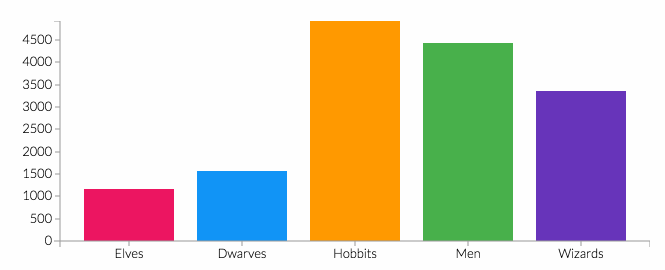GRADE V STUDENTS’ CHARACTERISTICS OF MI AL-MULTAZAM IN THE ENGLISH LEARNING PROCESS AT ELEMENTARY ISLAMIC BOARDING SCHOOLS
DOI:
https://doi.org/10.33853/istighna.v7i2.432Keywords:
Students’ Characteristics, Elementary Islamic Boarding School, Learning ProcessAbstract
The aim of this research is to observe the characteristics of grade V students at MI Al-Multazam in English learning process. Students’ characteristics can be observed according to the students learning drive, learning style, and initial potential. Students (santri) are students at Islamic boarding school. The children who are separated from their parents are in the process of development, both physically and psychologically. During their development, students have unique characteristics and are interesting to study in the learning process. Qualitative descriptive is the approach used by researchers in this research. Data was obtained through observation and interviews. The results of the research show that differences in student characteristics are a problem for educators in delivering foreign language learning material. Students tend to fluctuate in the English learning process. They have problems with unstable psychological conditions, learning styles that require teachers to use a variety of learning. Interest in learning English still requires intense motivation from teachers. The background of each student from various families and living independently in a boarding school greatly influences and adds to the uniqueness of how English is taught in Islamic boarding schools. Therefore, effective learning methods are needed, solutions by designing learning that is active, creative, effective and fun for students.
Downloads
References
Baharudin, & Wahyuni, E. N. (2007). Teori Belajar dan Pembelajaran. Ar-Ruz Media.
Bungin, B. (2015). Analisis Data Penelitian Kualitatif: Pemahaman Filosofis dan Metodologis ke Arah Penguasaan Model Aplikasi. RajaGrafindo Persada.
Creswell, J. W., & Creswell, J. D. (2017). Research Design: Qualitative, Quantitative, and Mixed Methods Approaches. Sage publications.
Desmita. (2006). Psikologi Perkembangan. PT Remaja Rosdakarya.
Dirman, & Juarsih, C. (2014). Pengembangan Potensi Didik. PT Rineka Cipta.
Djaali. (2023). Psikologi Pendidikan (10th ed.). Bina Aksara.
Efendy, T. (2023). Konsep Sistem Among Dalam Pendidikan Menurut Ki Hadjar Dewantara. Jurnal Multidisiplin Indonesia, 2(6), 1231–1242. https://doi.org/10.58344/jmi.v2i6.274
Fahyuni, E. F., & Nurdyansyah. (2018). Konsep Sekolah Ramah Anak Islami. UMSIDA PRESS.
Fauziyah, Nur Laily, Nabil, and Aldian Syah. “Analisis Sumber Literasi Keagamaan Guru PAI Terhadap Siswa Dalam Mencegah Radikalisme Di Kabupaten Bekasi.” Edukasi Islami: Jurnal Pendidikan Islam Vol 11 (2022): 503–17.
Hamaik, O. (2014). Psikologi Belajar & Mengajar. Sinar Baru Algensindo.
Harmer, J. (2010). The Practice of English Language Teaching (Fourth). Pearson Longman.
Janawi. (2019). Memahami Karakteristik Peserta Didik dalam Proses Pembelajaran. Jurnal Pendidikan Islam, 6(2).
Khodijah, N. (2018). Psikologi Pendidikan. PT Raja Grafindo Persada.
Lestari, E. T. (2020). Cara Praktis Meningkatkan Motivasi Siswa Sekolah Dasar. Deepublish CV Budi Utomo.
Marimba, A. D. (2010). Pengantar Filsafat Pendidikan Islam. Al Maarif.
Pritchard, A. (2013). Ways of Learning: Learning Theories and Learning Styles in The Classroom. Routledge.
Ratminingsih, N. M. (2021). Metode dan Strategi Pembelajaran Bahasa Inggris. PT Raja Grafindo Persada.
Richards, J. C., & Rodgers, T. S. (2007). Approaches and Methods In Language Teaching (Second). Cambridge University Press.
Santoso, G., & Suyudi, A. (2023). Peningkatan Hasil Belajar Pembelajaran Matematika dengan Metode Permainan melalui Penerapan Berpikir Kritis. Jurnal Pendidikan Transformatif ( JPT ), 02(04), 02(04), 265–269.
Santoso, G., Syahrini, N., Asbari, M., Fitriani, D., & Rantina, M. (2019). The Total Transformation of Our Education 21st Century Indonesia. 0(01), 19– 22. Jurnal Pendidikan Transformatif ( Jupetra ), 2(01), 19–22.
Setiyadi, B. (2006). Teaching English As A Foreign Language. Graha Ilmu.
Suyono, & Hariyanto. (2014). Belajar dan Pembelajaran: Teori dan Konsep Dasar. PT. Rosdakarya.
Tusriyanto, T. (2020). Pengembangan Sekolah Ramah Anak Di Tingkat Pendidikan Anak Usia Dini. Ri’ayah: Jurnal Sosial Dan Keagamaan, 5(01), 12. https://doi.org/10.32332/riayah.v5i01.2297
Zahro, A. (2015). Membangun Kualitas Pembelajaran Melalui Dimensi Profesionalisme Guru. CV. Yrama Widya.
Zaim, M. (2016). Evaluasi Pembelajaran Bahasa Inggris. Kencana Prenada Media Group.
Downloads
Published
How to Cite
Issue
Section
License
Copyright (c) 2024 Dariyanto, Fahmi Sahlan

This work is licensed under a Creative Commons Attribution-ShareAlike 4.0 International License.
Copyright Notice
Authors hold and retain copyright and grant the journal right of first publication with the work simultaneously licensed under a http://creativecommons.org/licenses/by-sa/4.0that allows others to share the work with an acknowledgment of the work's authorship and initial publication in this journal.

This work is licensed under a Creative Commons Attribution-ShareAlike 4.0 International License.

















